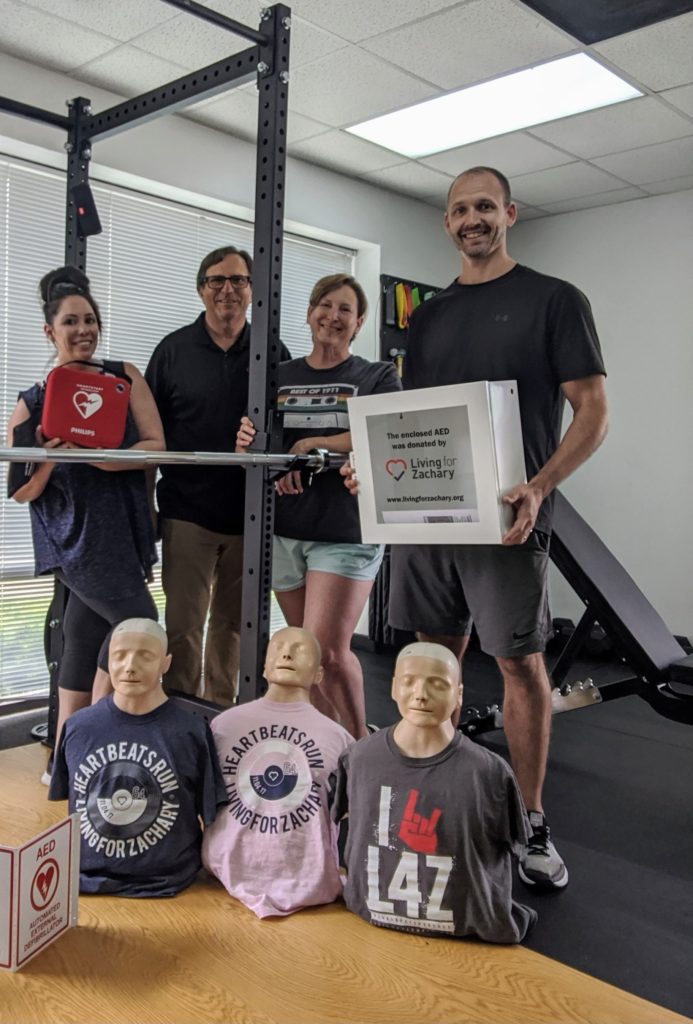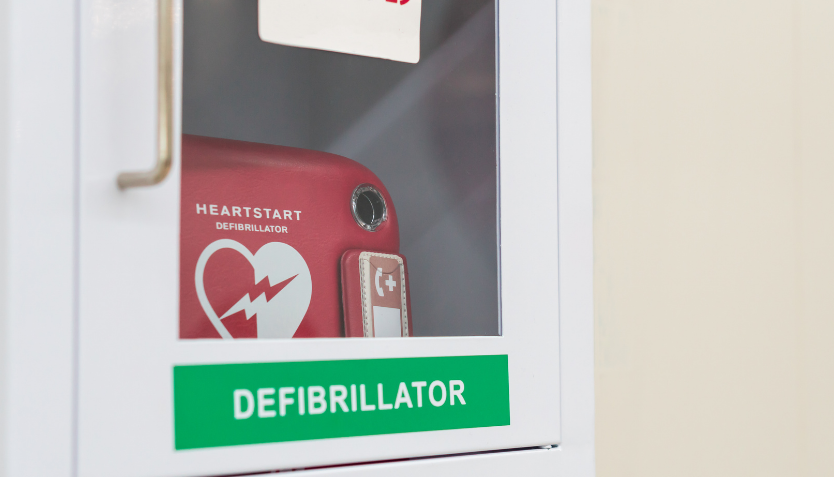On June 14, 2021, Senate Bill 199 was signed into law by Governor Greg Abbott. The law went into effect statewide on September 1st, and creates a few meaningful changes for business owners who have an AED on premises or would like to obtain one in the future. What does this law mean for Texans, and what steps should we take next? Read on as we break down what you need to know:
Background
AEDs are one of the most powerful and effective tools we have for saving lives from sudden cardiac arrest (SCA). The American Heart Association reports that SCA victims who receive a shock from an AED after collapse have significantly higher chances of survival than those who do not.[1] AEDs are specifically designed to be user friendly, so bystanders can quickly and effectively use them during a cardiac emergency, even before professional medical help arrives.
In Texas, certain locations are required to have an AED on premises. This includes[2]:
- Schools
- Nursing Homes
- Dental Offices
- Extended Care Facilities
SCA can happen anywhere, at any time, and to anyone. It occurs in churches, gyms, restaurants, shopping centers, performance spaces, public parks, and many more locations at an alarming rate each year. That’s why it is so important for businesses to make the decision to equip their facilities with an AED, even if not required by law.
Until now, some Texas businesses who desired to place an AED on premises have been hesitant to do so, fearful of liability issues that could arise after a medical emergency. This new law seeks to address those concerns and make obtaining an AED an easier choice for businesses, as well as updating inspection requirements to maintain AED functionality. Here’s a quick breakdown of the changes this law puts into place:
What the Law Does
- For a business/entity that owns, occupies, manages, or is responsible for an AED, this law removes liability for civil damages related to the use, attempted use, or failure to use the AED.
For example, if an AED is used on a SCA victim at a gym but fails to save that victim’s life, or the AED is not used at all, the gym cannot be held liable unless their conduct can be proven to be willfully or wantonly negligent.
- The law also provides similar protections from liability for physicians who prescribe an AED and/or those who train others in the use of an AED.
- For businesses with an AED on premises, the law provides new requirements that the AED be inspected on a monthly basis to check that:
- The AED is placed in its designated location
- The AED appears to be ready for use
- The AED is not damaged
- The law removes CPR/AED training requirements for businesses who obtain an AED
What the Law Does Not Do
- The law does NOT require all businesses to have an AED on premises, except for those already outlined in Texas law.
- The law does NOT outline any new CPR/AED training requirements for those who obtain an AED.
- The law does NOT specify who should conduct a monthly AED inspection.
Takeaways
The passage of Senate Bill 199 opens the door for thousands of new AEDs to be placed in businesses across the state of Texas. This law is a productive step forward in creating safer communities and saving countless lives from sudden cardiac arrest. Thank you to all those who worked to create and pass these important updates to Texas law!
If your business does not currently have an AED on premises, consider the impact it can make on the hearts who enter through your doors each day. Easy access to an AED can mean the difference between life and death. If you do currently have an AED but have a large building or multiple buildings, check to ensure you have enough AEDs to be easily reached from anywhere within 3 minutes or less. You may need more than one AED to adequately cover your business!

At Living for Zachary, we know AEDs can be a big investment for businesses. Our AED Donation Program seeks to meet this need as we donate these life-saving devices to youth-based organizations across the state of Texas at no cost to them. Our donation recipients include schools, churches, after-school organizations, gyms, and more. For AED recipients in North Texas, we provide CPR/AED training for 8 individuals to ensure that each business has people on hand who are prepared to step in and assist during a cardiac emergency.
AEDs save lives. With more of them in the places we learn, work, and play, we can change outcomes from SCA and give more hearts a second chance.

